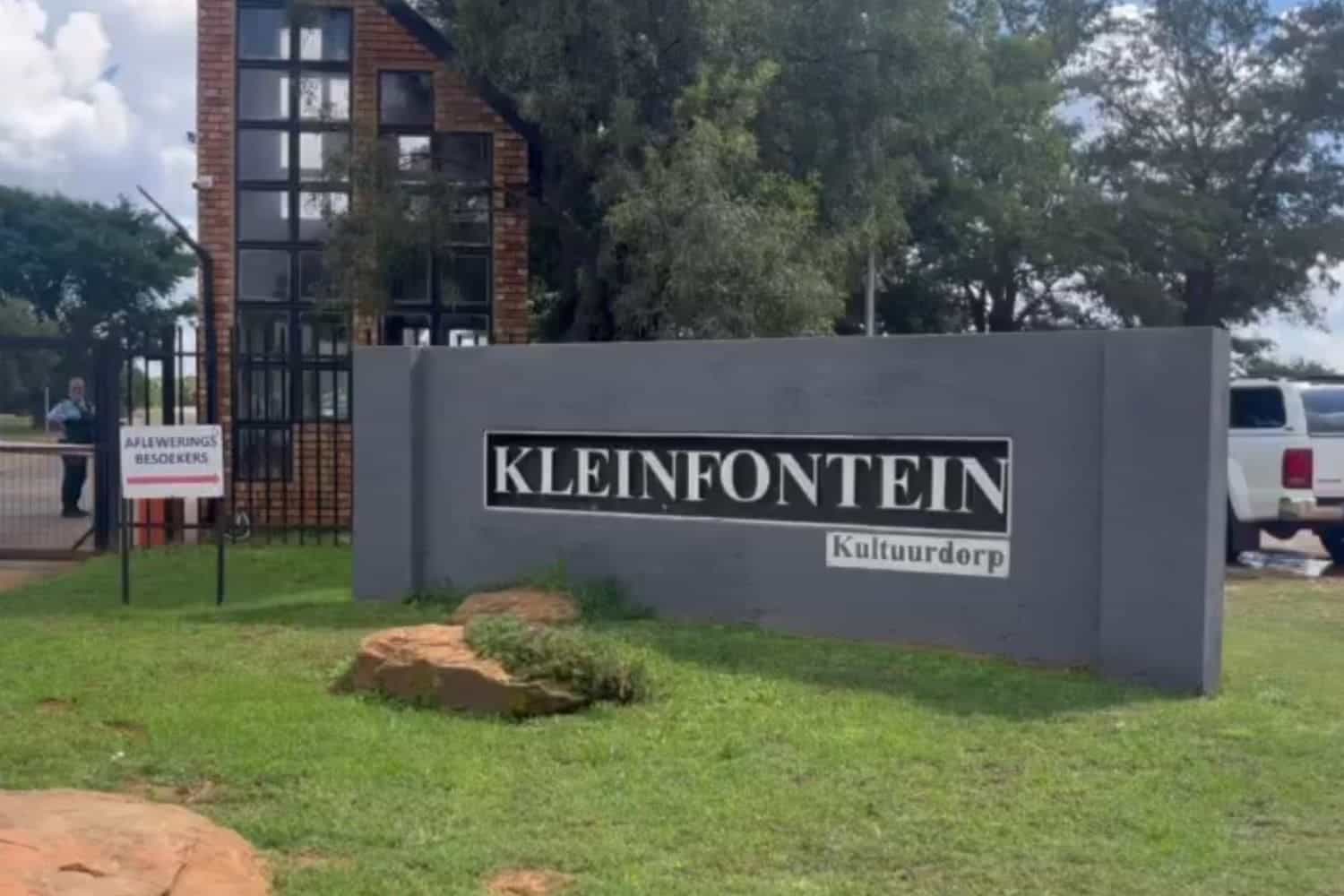The parties confirmed that they would actively work together to develop a proposal for Kleinfontein to be rated as an eco-estate with a minimal environmental footprint.

It was a step forward for the Kleinfontein community with a possible memorandum of understanding on the table to guide the future cooperation between the City of Tshwane and residents following a meeting last week.
Kleinfontein is one of about 17 illegal developments in Tshwane. It consists of about 650 housing units, including an old-age home, community hall, shopping centre, school building and a light industrial area. It is a private, culturally segregated Afrikaner settlement near Pretoria, founded in 1992, to preserve Afrikaner culture and heritage.
Last week, Tshwane MMC for finance and deputy mayor Eugene Modise, Kleinfontein Residents Association chair Henk Cilliers and Republican Conference of Tshwane councillor Lex Middelberg met to discuss a number of issues relating to Kleinfontein and the objective of formalisation.
Kleinfontein proposal
The parties confirmed that they would actively work together to develop a proposal for Kleinfontein to be rated as an eco-estate with a minimal environmental footprint. It will address its demands on water and the adverse effect this has on neighbouring farms that are reliant on groundwater.
Cilliers said some of the points of discussion included that the association will henceforth be invited as a relevant party with a seat at the table in all future engagements the city may have with the directors of Kleinfontein Aandeleblok (shareblock) about the formalisation process.
ALSO READ: ‘Tshwane not discriminating against Kleinfontein’
A shareblock is a type of property ownership where a person buys shares in a company that owns a development and the shares grant them the right to use and occupy a specific unit in that development.
“The city is heartened by the offer of the residents’ association that members will pay their rates directly to the city.
“To this end, it will, as a matter of priority, investigate the feasibility of setting up individual accounts and provisional valuations for members of the residents association to pay their rates directly to the city as if it is categorised residential, instead of the punitive non-permitted use for which Kleinfontein Aandeleblok’s properties are presently categorised.
“It will also exonerate those who pay their rates directly to the city from further liability on a punitive scale,” Modise said.
Continued discussions
Also part of the consensus includes the possibility of the city withdrawing its opposition to the appeal of the original order by High Court acting judge AJ Vorster, interdicting the further development of Kleinfontein until formalisation has taken place.
ALSO READ: Kleinfontein is not an illegal township, maintains CEO
Modise said the city regards the continued discussion with the residents’ association as a positive development. The city intends to take the discussion forward as an example for everyone of the remaining illegal developments that need to be formalised, he said.
Tshwane intends to use the outcome of these discussions as a blueprint to guide residents of those other illegal developments, Modise said.
“We appreciate the attitude of the Kleinfontein Residents Association’s committee and their appetite to resolve the matter amicably and responsibly.
“We also appreciate that accountable Kleinfontein residents are prepared to pay their rates and taxes and will cooperate with valuations from the city,” he said.
Kleinfontein spokesperson Dannie de Beer said Kleinfontein management was engaging through its legal representatives with Tshwane’s lawyers. De Beer said the group were not elected and did not have the power to represent Kleinfontein.
“The case is actually sub-judice and is in the hands of the two legal teams,” he said.
Support Local Journalism
Add The Citizen as a Preferred Source on Google and follow us on Google News to see more of our trusted reporting in Google News and Top Stories.






